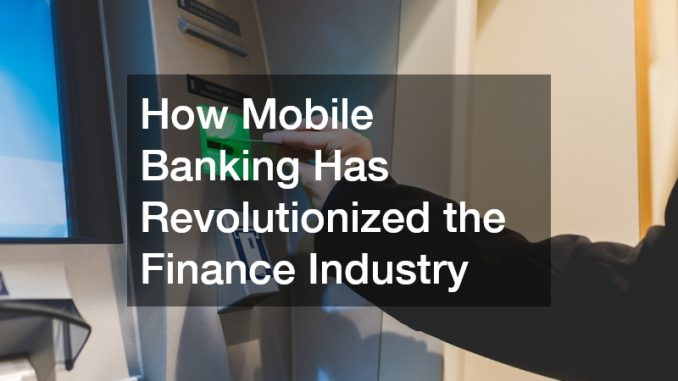

In the past decade, mobile banking has transformed the way we manage our finances, offering unprecedented convenience and accessibility. The finance industry has undergone a significant shift as more consumers adopt mobile banking for everyday transactions, investments, and financial management. Here’s how mobile banking has revolutionized the finance industry and what it means for consumers and financial institutions alike.
Convenience and Accessibility
One of the most significant impacts of mobile banking is the convenience it offers. Gone are the days when customers had to visit a bank branch for simple tasks like checking their balance, transferring funds, or depositing checks. With mobile banking, these tasks can be completed in seconds from anywhere with an internet connection. This convenience has not only saved time for consumers but has also broadened access to financial services for those in remote or underserved areas, bringing banking to their fingertips.
24/7 Banking
Mobile banking has made it possible for consumers to manage their finances at any time of day or night. This 24/7 access to banking services is a game-changer, especially for those with busy schedules or in different time zones. Whether it’s paying bills, transferring money, or monitoring account activity, mobile banking provides the flexibility to handle financial matters when it’s most convenient for the user. This constant availability has increased consumer engagement and satisfaction, as they no longer need to adhere to traditional banking hours.
Enhanced Security
Security is a top priority in the finance industry, and mobile banking has introduced advanced security measures to protect users’ financial information. Features like biometric authentication (fingerprint or facial recognition), two-factor authentication, and real-time fraud alerts have made mobile banking a secure option for consumers. These security enhancements have built trust in mobile banking platforms, encouraging more people to shift to digital financial management.
Innovative Financial Services
Mobile banking has also paved the way for innovative financial services that were not possible with traditional banking. For example, mobile apps now offer budgeting tools, financial planning advice, and instant loan approvals, all integrated into the banking experience. This has empowered consumers to take greater control of their finances, with personalized insights and recommendations available at their fingertips.
Impact on Traditional Banking
The rise of mobile banking has forced traditional banks to adapt and evolve. Many financial institutions have expanded their digital offerings, investing in user-friendly apps and digital customer service to stay competitive. This shift has led to a more dynamic and customer-centric banking environment, with institutions striving to meet the needs of tech-savvy consumers.
Mobile banking has revolutionized the finance industry by offering unparalleled convenience, security, and innovation. As more consumers embrace digital financial management, the industry will continue to evolve, providing even more advanced and personalized services. For consumers, mobile banking represents a powerful tool for managing their finances efficiently and securely, anytime and anywhere.
.
